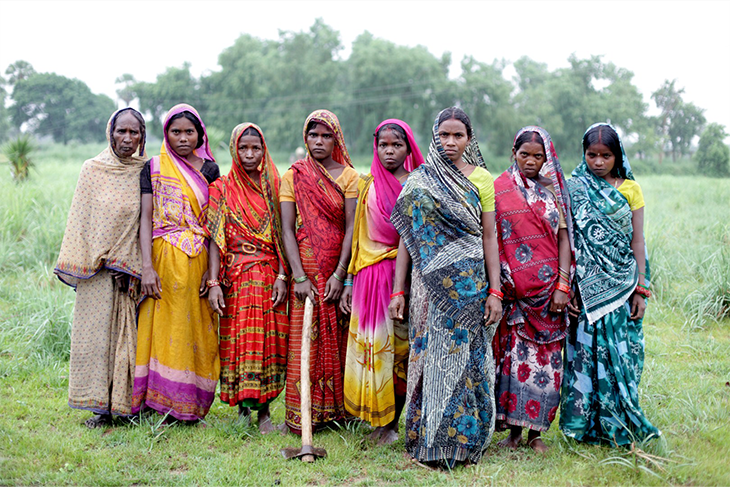The 2011 Socio Economic and Caste Census shows that 56% of households in rural India do not own any agricultural land, despite the high dependence of rural workforce on agriculture.
Land has ever been at the center of human quest. Despite centuries of struggles, the question of land remains unresolved, reflecting hegemonies of class, caste, patriarchy, ethnicity and colonization. Large majorities of peasant and worker families of our world remain without land, or with very small holdings. Gross inequalities in land ownership characterize our world, begging a question on the intent and capability of democratic welfare states to redress this state of affairs.
The history of land reforms in India has been one of feeble legislative attempts – weak in formulation and poorly implemented. In the meantime, people’s alienation from land has continued in many ways and forms. The 2011 Socio Economic and Caste Census shows that 56% of households in rural India do not own any agricultural land, despite the high dependence of rural workforce on agriculture. Further, the NSS nation-wide survey on Land and Livestock Holdings as a part of its 70th round (January-December 2013) revealed that the top 7.18% of households owned more than 46.71% of the land. Historically oppressed communities, especially Dalits and tribal communities, are largely landless and continue to be dispossessed in huge numbers too. Census 2021 will tell us changes in the decade gone by; but numerous studies point to growing alienation from land during this period too.
Dignified and sustained economic progress for crores of Indians is a constitutionally mandated part of nation building. The need is to create decent, secure jobs at, proverbially speaking, the speed of light. However employment in non-agricultural sectors has not been growing at any substantive level to meet the challenge. The Economic Survey (2019-2020) estimates the number of formal sector jobs created between 2011-2012 to 2017-2018 at only 4.36 million jobs every year. Undeniably informalisation and swelling of agrarian underclass is the spectre unfolding before us.
The answer therefore lies in the taking a two-pronged approach. On the one hand propelling, on the basis of land reforms, the potential of climate resilient peasant agriculture, and on the other creating decent, meaningful and secure work in the formal sector, both in manufacturing and services, and promoting the cooperative owned enterprises in rural and urban spaces. Fundamental to the first trajectory is to ensure the agriculture is not submitted to the logic of corporate industrialisation, but rather nurtured for its peoples ownership-based employment, food security and ecological sustainability.
A progressive land reform agenda needs to focus on the redistribution of land which is under the ownership of the state, and can be distributed among landless persons and communities. This includes redistribution of ceiling surplus land, downward revision of the ceiling limits in irrigated areas, distribution of bhoodan lands which are still not properly recorded and distributed, and all such land owned by the state but has been under cultivation by the landless rural poor for a long time though their claims over it are not legally recognised.
We need allotment of homestead land for homeless persons in rural and urban areas, and recognition of rights of communities over “commons” including pastures, grazing lands and waterbodies and stoppage of all transfers of such land to private and external agencies. We have to reinforce rights of people to forestland and other forest resources. Lastly, the agenda calls for a transformation in laws and practices which continue to reflect a bias against women’s ownership, control, and use of land.
The time has come to frame the debate for minimum land holding for those engaged in active agriculture. A National Land Reforms policy, critical in providing an integrated policy framework for central, state, and local governments, is an urgent need of the hour.
Disclaimer: The article was originally published on Hindustan Times. The views expressed in the article are the author’s and do not necessarily reflect those of ActionAid Association.
 Author: Sandeep Chachra
Author: Sandeep Chachra

